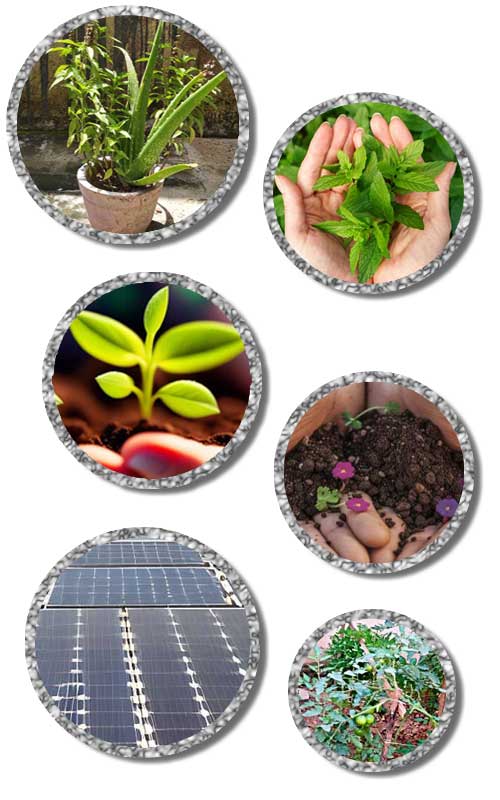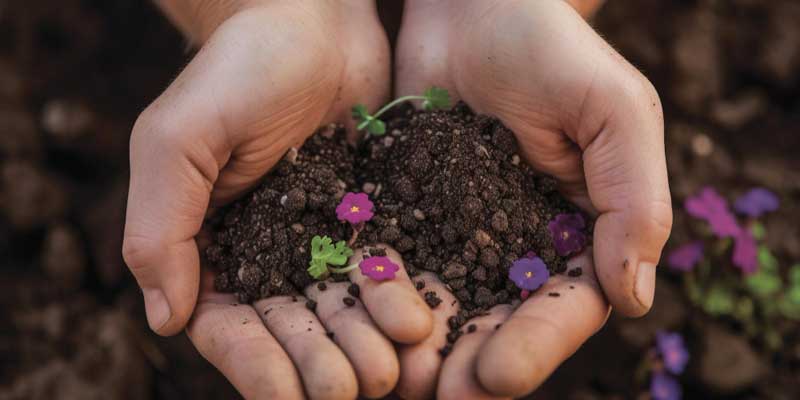As concerns for the environment and sustainable living continue to rise, finding ways to reduce waste and create valuable resources from everyday materials has become increasingly important. One such practice is converting kitchen waste into nutrient-rich compost, which not only helps divert waste from landfills but also produces a valuable soil amendment that can enrich your garden and promote plant growth. In this article, we will guide you through the process of turning your kitchen waste into compost, step by step.
1. Gather Your Materials
Before you begin composting, gather the following materials:
- Kitchen Waste: Collect fruit and vegetable scraps, coffee grounds, eggshells, tea bags, and other food waste generated in your kitchen.
- Browns: These carbon-rich materials balance the compost and include items like dried leaves, straw, cardboard, and newspaper.
- Greens: These nitrogen-rich materials provide essential nutrients and include items like fresh grass clippings, vegetable scraps, and coffee grounds.
- Aeration Tools: A pitchfork or compost-turning tool helps to mix and aerate the compost pile.
- Compost Bin: Choose a compost bin or build a compost pile outdoors. Indoor compost bins are suitable for apartments or homes with limited outdoor space.
2. Set Up Your Compost System:
Depending on your space and preferences, set up either an indoor or outdoor composting system:
- Indoor Composting: If you have limited outdoor space, use a compost bin specifically designed for indoor use. These bins often have a tight seal to prevent odors and pests.
- Outdoor Composting: Select an appropriate location for your compost pile or bin. Choose a well-drained spot with good air circulation. You can create a simple pile or use a compost bin to contain the materials.
3. Start Composting:
Follow these steps to begin the composting process:
- Layering: Begin with a layer of browns, followed by a layer of greens. Alternate between brown and green layers to create a balanced mix.
- Chop and Shred: Chop or shred larger kitchen waste items into smaller pieces. This helps speed up decomposition.
- Maintain Ratios: Aim for a balanced ratio of roughly 2 parts browns to 1 part greens. This balance ensures proper decomposition and minimizes odors.
- Aerate: Turn the compost pile or use a compost-turning tool to aerate the materials regularly. This helps facilitate the breakdown process.
- Moisture: Keep the compost pile moist, but not soggy. Water it as needed, especially during dry periods.
4. Manage Your Compost:
As your compost pile matures, manage it by following these steps:
- Monitor Temperature: A healthy compost pile will generate heat as materials break down. Use a compost thermometer to ensure the pile reaches temperatures between 130°F and 160°F (54°C to 71°C) for optimal decomposition.
- Add Materials: Continue adding kitchen waste and other compostable materials in layers. Mix them into the existing pile to maintain a balanced composition.
- Turning: Turn the compost pile every 1-2 weeks to aerate and promote even decomposition.
- Patience: Composting takes time. Depending on the materials and conditions, your compost should be ready in 2 to 4 months or may take up to 6 months if the weather is very cold.
5. Harvest Your Compost:
When your compost is dark, crumbly, and has a pleasant earthy smell, it’s ready to use. Follow these steps to harvest and use your compost:
- Stop Adding Materials: A few weeks before you plan to use the compost, stop adding new materials to the pile.
- Screening: If desired, screen the compost to remove any larger, undecomposed materials.
- Application: Spread the finished compost in your garden beds, mix it with potting soil for potted plants, or use it as a top dressing for your lawn.
By following these steps, you can effectively convert your kitchen waste into nutrient-rich compost, reducing your carbon footprint and contributing to a healthier environment. Composting not only benefits your garden but also promotes sustainable practices that support a more eco-friendly lifestyle. So, roll up your sleeves and start turning your kitchen waste into a valuable resource today!








